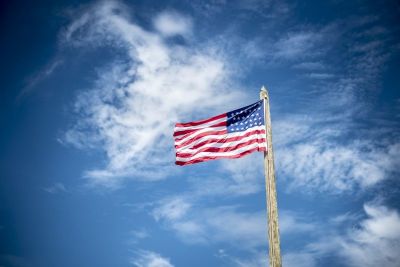America: Christian or Not?

Is America a Christian Nation?
That's a conversation going on currently in Dallas, Texas, once a "Vatican" of the Evangelical Bible Belt, home of the Baptist General Convention of Texas and other denominations, headquarters city for many large Christian ministries, and location of several of the nation's largest churches.
One of them is First Baptist Church of Dallas, the center of the current furor there over America's Christian roots. Dr. Robert Jeffress, the congregation's senior pastor, promoted an upcoming sermon on America's roots with a billboard declaring, "America is a Christian Nation." The billboard's message upset Dallas Mayor Mike Rawlings, who feared it might be divisive. "It's not the Dallas I want to be," said the mayor, who nevertheless personally identifies as a Christian.
Is America a Christian nation or not?
- Not in the strict sense of the nation having Christianity as the official state religion
- Not in the strict sense of America having a national church, a "Church of America"
- Not in the strict sense that only Christians may vote or hold elective office
- Not in the strict sense that Christian moral values are the standards denoting what is criminal and what is not
- Not in the strict sense that America's consensus-defining establishments (Information, Entertainment, Academic, Political, Corporate) embrace and promote the Christian worldview and its values
But there is a general sense in which America was-is (just barely now) a Christian nation.
Harvard political scientist Samuel Huntington wrote, in his important book, Who Are We? that America's foundational identity was "Anglo-Protestant Culture." He stressed he did not mean "Anglo-Protestant people. The culture, in fact, led to a multi-ethnic nation because the Bible taught that "there is neither Jew nor Greek, there is neither slave nor free man, there is neither male nor female; for you are all one in Christ Jesus." (Galatians 3:28)
Huntington itemized traits he believed contributed to America's success and attracted immigrants from through the world: the English language, Christianity, religious commitment, English concepts of the rule of law, the responsibility of rulers and the rights of individuals, dissenting Protestant values of individualism, the work ethic, the belief that humans have the ability and the duty to try to create a heaven on earth, a "City on a Hill" (as John Winthrop envisioned in 1630).
If the nation is able to continue to rest itself on that foundational worldview, Huntington believed, "America will still be America long after the Waspish descendants of its founders have become a small and uninfluential minority" (think now).
Presently, Canadian professor Jordan Peterson tries to help the postmodern secular age find some moral grounding, through principles in his book, 12 Rules for Life. "Dr. Peterson is refreshing in how seriously he takes Christian texts and the role they played in the formation of Western civilization," write Scott Ventureyra and John Horvat in their review of Peterson's book appearing in The Imaginative Conservative.
Peterson's inference is that we will have "cosmos" (order) or "chaos," and that the right value system must prevail if our contemporary fragmentation is not to become ruin.
History supports Huntington's view of the Christian core of America's foundational worldview. Alexis de Tocqueville, who came to America trying to understand why its revolution succeeded while that in France collapsed into the Reign of Terror, was amazed at the vitality of religion he found in the young United States, and the number of churches everywhere.
In some sense John Winthrop's vision of a "City on a Hill" became true. "In the years between the American Revolution and the Civil War, the Bible offered to many Americans a key for understanding not only private religious reality but also the public life of the country," wrote historian Mark Noll, in his book co-authored with Nathan Hatch, The Bible in America.
The widespread use of the Bible in both private and public life in that foundational age makes it "not inaccurate to call the country a biblical nation during this period," said Noll.
Samuel Huntington warned, however, that it might be the "greatest surprise... if the United States in 2025 were still much the same country it was in 2000 rather than a very different country (or countries) with very different conceptions of itself and its identity..."
Such deconstruction has been going on a long time.
My childhood was in the 1940s-1950s. Every Monday morning at the public schools I attended, we not only began the day with Bible reading and prayer, but also with what is now a startling, even prosecutable question from our teachers: "How many of you attended Sunday School yesterday, raise your hands?" We would be given a card where we could register our presence at a church Bible study class on the previous day, turn it in, and receive some form of credit.
Fair or unfair, that illustrates the difference between the "old America" (which still had many injustices and problems) and the contemporary version (with even more injustices and problems).
So, we might conclude that once upon a time, America was a Christian nation in a stricter sense, but now is less so.
Let the reader judge whether that is good or bad.
And thank God for the freedom to do so.




















